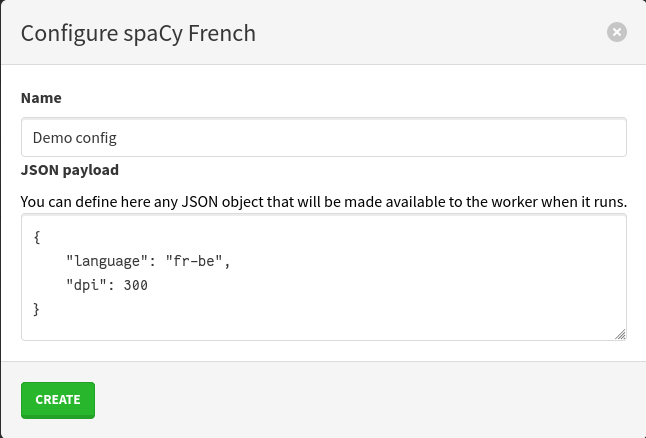A new release is available for Arkindex instances. You can test it on our demo instance: demo.arkindex.org.
You can learn more about Arkindex on its official documentation.
Process templates
This release comes with a first version of a long-awaited feature: the ability to store a process' workers as a template that can be easily reused on other processes, to avoid going through the configuration step again.
It is now possible to create a template from any process from within the configuration page, as well as from any process that has completed successfully.
You can select and apply an existing template to any new process on any project, as long as you have the access rights to all of its workers.

Workers
It is now possible to delete all worker results from all worker versions at once in any project or folder, making it easier to restart from a clean slate.
Worker configuration
Further work has been made on the worker configuration feature, to make configurations reusable similarly to templates. The JSON configuration field has now been migrated to named configurations that you can create and reuse on a specific worker.

You can apply a worker configuration in a process simply by selecting it in the configurations page:

Additionally, if an instance administrator decides to disable the workers feature on an Arkindex instance, the frontend now shows a proper error message on unconfigured worker processes.
UI/UX
-
The sections on the project details page have been split into tabs to increase readability.
-
Work has started on a new annotation panel that replaces the element details while annotating, which will allow us to expand the annotation features in later versions.
-
Very long task slugs in the process status page are now properly truncated.
API changes
-
Child elements created using the bulk API endpoints now inherit their parent's rotation angle and mirrored state.
-
Numeric metadata now have their values serialized as floats in the API to make them easier to consume.